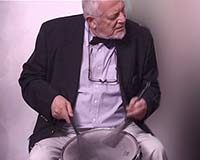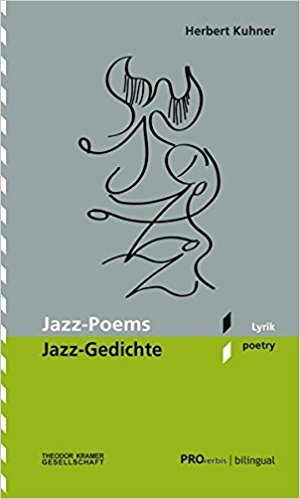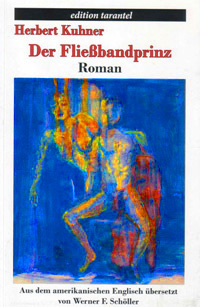Bringing The Dead to Life
John Huston brought James Joyce’s The Dead to life, or rather to the screen. It came to life in the sense that the beautiful Irish dialogue was spoken by the actors and heard by the viewer, rather than read by the reader, as was the monologue that is the coda to the story.
The Dead, as unfilmable, as any story can be, became a film due to the magic of the director and a cast of Irish actors, with voices imbued with the music of the brogue that lilts the Emerald Isle, actors whose home is the legendary Abbey Theatre.

the legendary Abbey Theatre
The story is simple. Christmas dinner in 1904 marks the end of an old world and the beginning of a less humane new world. And then there is the coda in which Gabriel Conroy relates the death of a boy who loved his wife when she was young. He spends a rainy night below her window and catches pneumonia.
John Huston, a director of masterpieces like The Maltese Falcon, films containing masterful scenes and bombs like The Bible, decided that The Dead would be his swan song. He directed in a wheelchair with an oxygen mask at hand. Huston knew that this would be his last film.
Too much gallivanting, too much smoking and drinking with intemperate men such as himself, had made the end premature. Living life to the hilt means living a shorter life.
A dying John Huston kept himself alive so that this pet project would not go unfinished. And although Huston drew his last breath before it was finished – it did not go unfinished, His son Tony, who wrote the screenplay for another masterpiece Wise Blood, had adapted the Joyce story for the screen, and Tony had to put the finishing touches on The Dead.
To quote a sentence from Gabriel Conroy’s monologue: “One by one, we’re all becoming shades.”
While Huston was becoming a shade, he provided us with a film worthy of James Joyce. And that is an exemplary way of passing from this life.
Luis Bunuel’s Kafkaesque Approach
Luis Bunuel, like James Joyce, was a Catholic turned inside out. Both artists tried to leave Catholicism behind, but it pursued them wherever they went till the final word in the final scene.
The hatred was so intense that it turned into love. Joyce showed how great that hate was by refusing to pray at his mother’s deathbed. Was that not an act of love? If he had prayed, or made believe that he was praying, he would have shown that Catholicism meant nothing to him.

Luis_Buñuel
Two great Bunuel films were The Milky Way and The Exterminating Angel. The former is a concatenation of religious scenes that two travelers participate in. Of course each scene is a blow against the Faith. The latter film is confined to a confining space. The plot is simple. At a dinner party attended by Mexican haute volé, the guests find themselves unable to leave the salon in host’s mansion. That’s it, ladies and gents. And as the evening progresses into night, the partygoers descend more and more into barbarism.
Luis relates how someone approached him at reception and wanted to know exactly why no one was able to leave the premises.
Luis was nonplussed and offered no explanation.
Here’s the self-evident explanation. It’s of no consequence why they couldn’t leave. This surrealistic touch shows how cultivated people would behave if they found themselves in such a situation. It’s a device, a sort of deus ex machine in reverse.
At the only Kafka symposium that I ever attended, some dimwit raised his hand and wanted to know why Edger Samsa turned into an insect in Metamorphoses.
I always emphasize that I don’t use the scholastic approach in my literary work. So I may have been the second most out-of-place person at that occasion, but I took it upon myself to provide the answer.
Here’s what I said. “Kafka has Samsa turn into an insect so that the Kafka-reader could perceive how the world, including Edgar, would react if God forbid, a young man woke up to discover that he had turned an insect overnight.”
Surrealism is a means of intensifying reality.
Joe Hill and a Nice Touch
An essential thing in film, or any narrative art for that matter, is “nice touches.” These are insignificant matters that take on significance.
Here’s an example: Bo Widerberg’s The Ballad of Joe Hill is about Swedish-American political agitator Joe Hill. Joe enters a first-class restaurant in order to recruit the kitchen staff into the union. His plan is to order a meal with all the trimmings and then show his empty pockets, which will lead to an extensive period in front of the kitchen sink.

When Joe orders wine, the haughty waiter pours a small amount into the glass. The waiter waits for Joe to taste and Joe waits for the glass to be filled. They exchange looks. The exchange continues until the waiter finally sighs, shrugs his shoulders and fills his glass.
This is what is called a nice touch. What can I say to this brief scene – other than masterpiece!
When I saw the film, way back in ’71, my friend the artist Hermann Painitz described an incident that occurred in Paris. He took the metro, and as he sat in his seat, a conductor appeared and asked for his ticket. When Hermann produced it, the conductor took it, looked at it and then looked at him. He in turn looked at the ticket in the conductor’s hand and then looked at the conductor. These looks continued until the conductor finally tried language – that is, he made a surly attempt to break the language barrier. Hermann was in a first class metro car with a second class ticket. Who in Christ’s name would have two classes in a subway other than the French? And it must be said that this encounter is not untypical. As a Francophile and a Francophone, I have to admit that French manners do not always match the musicality of the language or the elegance of the culture.
When I recently mentioned the incident to Hermann, he did not recall it. I didn’t forget it, nor could I ever forget the wonderful scene in Joe Hill.
I see the scene in the metro as if it were right out of a film. It is as clear in my mind as the scene in the restaurant. I guess you don’t always have to see a film in order to see a film.
Joe Hill, however, had a tragic end, as did Joe’s life. He was railroaded into death row for a murder he did not commit.
Yes, these things have happened and still happen in America.
Here’s The Ballad of Joe Hill written in his cell, November 18, 1915, on the eve of his execution:
My will is easy to decide,
For there is nothing to divide.
My kind don’t need to fuss and moan –
“Moss does not cling to a rolling stone.”
My body? Ah, If I could choose,
I would to ashes it reduce,
And let the merry breezes blow
My dust to where some flowers grow.
Perhaps some fading flower then
Would come to life and bloom again.
This is my last and final will.
Good luck to all of you.
to be continued . . .
– Herbert Kuhner











 Users Today : 110
Users Today : 110 Users Yesterday : 107
Users Yesterday : 107 This Month : 506
This Month : 506 This Year : 7883
This Year : 7883 Total Users : 229019
Total Users : 229019 Views Today : 252
Views Today : 252 Total views : 1964765
Total views : 1964765 Who's Online : 2
Who's Online : 2




